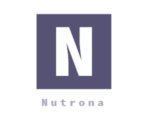Dietary supplements are products whose purpose is to provide the nutrients necessary for the proper functioning of the body. They are usually taken in the form of tablets, capsules or liquids. The supplementation itself, however, raises a lot of controversy, because on the one hand it is overestimated, for example, by amateur sportsmen, and underestimated by professional athletes. Where do these differences come from? Why is the provision of ingredients that our body may be lacking in a dispute at all? This is largely due to conflicting test results and insufficient competent analyzes by certified health institutes. A lot of emotions have arisen around supplementation, and yet no scientist who appreciates questions the positive effect of vitamins or microelements on the healthy functioning of human systems. It is also impossible to deny that the body works badly when it lacks the right ingredients.
Let’s see what healthy supplementation is and what you should know about it.
When is it worth and when it is not worth using dietary supplements
Some common examples of supplements include vitamins and minerals (such as vitamin C, iron, and calcium), oil supplements (such as fish oil capsules), and herbal supplements.
Supplements are often used without first consulting a doctor or nutritionist. Meanwhile, it is best to use them when you find that you do not have an important nutrient in your diet. For this, it is sufficient to perform a basic blood test. Remember that some supplements used in excess can do more harm than good. Often it is enough to just take the supplement temporarily. For example, if you are pregnant, you may need supplements until your baby is born or until you finish breastfeeding.
In other cases, you may need to take the supplement over an extended period of time, such as if you have chronic illness.

Action of dietary supplements
If we already determine what our body lacks, we can use an adequate selection of nutrients, vitamins and microelements.
Among the most commonly used vitamins is vitamin D3, which is a prohormone produced when we are exposed to sunlight. Statistics show that nearly 90% of Poles suffer from vitamin D3 deficiency, especially in the autumn and winter season. What else is D3 up to? Among other things, it has a great impact on bone metabolism and the immune system, as well as the nervous and muscular systems. It also regenerates neurons and muscle microdamages. It has an immunomodulating effect, i.e. it controls the body’s resistance to various types of infections. As if that were not enough, vitamin D3 stimulates the liver’s ability to regenerate.
Another ingredient that seems necessary in proper supplementation are omega-3 acids, which consist of DHA – docosahexaenoic acid, EPA – eicosapentaenoic acid and ALA – alphalinolenic acid. These acids are responsible for reducing the level of triglycerides, increasing the level of HDL (cholesterol contained in the HDL fraction has an anti-atherosclerotic effect, therefore it is called “good cholesterol”), reducing the level of LDL, which is responsible for the transport of cholesterol to the body cells and is called “bad cholesterol” ), as well as a drop in blood pressure, lowering inflammation or reducing symptoms of depression.
Another supplement worth mentioning is the B vitamin complex. This composition consists of 8 water-soluble B vitamins, i.e. B1 (thiamine), B2 (riboflavin), B3 (niacin), B5 (pantothenic acid), B6 (pyridoxine), B7 (biotin), B11 (folic acid), and B12 (cobalamin). The lack of vitamins from this group most often results in anxiety and hyperactivity. Then there may also be problems with concentration, as well as hair loss, lack of appetite or poor metabolism. In this case, supplementation is extremely important for the good functioning of the entire nervous system. Thanks to vitamin B, our nervous tensions are relieved, and the body itself regenerates better.
Other ingredients that are good to supplement include: vitamin C, which the human body is unable to synthesize, as well as zinc, magnesium, protein supplements for weight gain, glutamine supporting the immune system and probiotics.

What is the alternative to supplements?
The best way to get all the nutrients you need is to eat a balanced diet. Consult the guidelines of the World Health Organization for advice on the right amount and type of food to eat. If you are concerned that you are not getting all the nutrients you need, talk to your doctor or consult a nutritionist. Do not rely on your own ideas on such an important issue as your own health.





